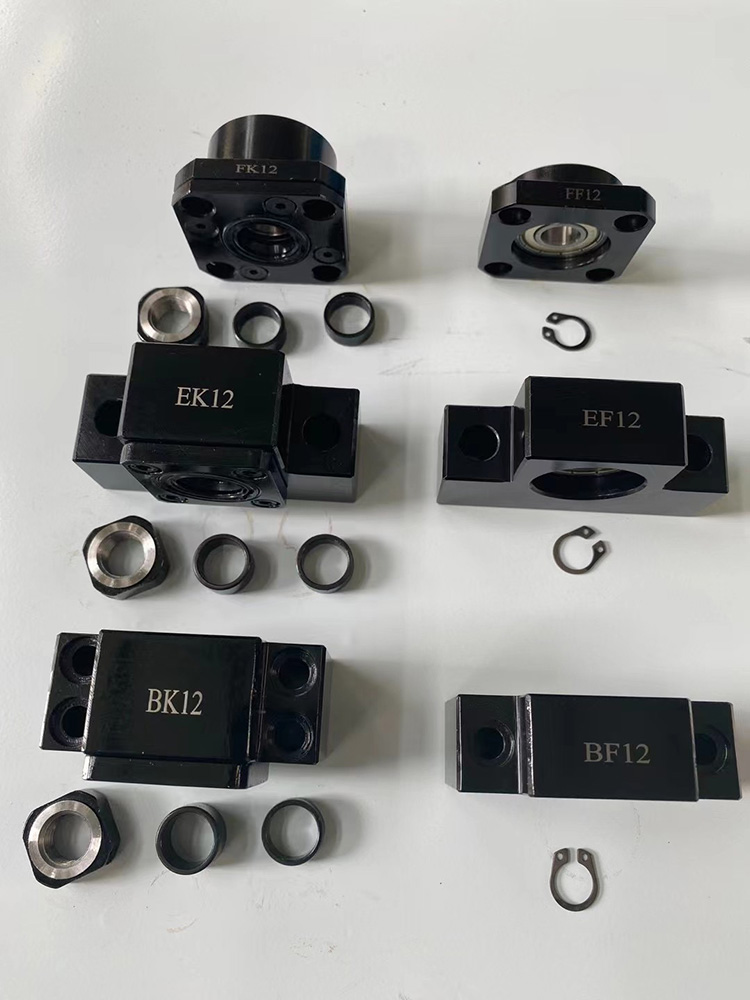Ball screw supports are key components of automated production lines. Their high precision, high rigidity, and corrosion resistance directly affect the accuracy of transmission and the service life of equipment. Faced with extreme conditions such as high speeds, heavy loads, and dusty environments, their design must break through traditional mechanical thinking and evolve toward intelligence and high adaptability.

High precision and high rigidity: Automated production lines demand extremely high levels of positioning accuracy and motion stability. Ball screw support brackets must possess high rigidity and precision to prevent vibration or displacement of the ball screw during high-speed or high-load operation, thereby ensuring the transmission accuracy and repeatability of the entire system.
Corrosion Resistance and Environmental Adaptability: In industries such as food, pharmaceuticals, and chemicals, equipment may be exposed to humid, acidic, alkaline, or corrosive environments. Therefore, ball screw support brackets must be made of stainless steel or special alloy materials with excellent corrosion resistance to withstand complex and harsh working conditions.
Machining and Assembly Precision: The machining precision of the ball screw support seat directly affects its fit with the lead screw. Typically, high-precision machine tools are used for machining, followed by heat treatment and surface treatment to enhance strength, wear resistance, and surface finish, ensuring stable long-term operation.
Standardization and Maintainability: Automated production lines emphasize quick maintenance and modular replacement. Lead screw support seats are typically designed with standardization in mind, facilitating installation, disassembly, and replacement.
Reasonable Selection of Preload Levels: Depending on different load conditions and application scenarios, the ball screw support bracket must be matched with an appropriate preload level to meet requirements for different stiffness, vibration control, and load capacity.
Installation and Commissioning Standards: During installation, the support bracket must be selected based on the ball screw model, and the clearance and preload must be precisely adjusted. After installation, a trial run test must be conducted to ensure there are no abnormal vibrations, noise, or temperature rises, thereby ensuring stable system operation.
From rigid support to thermal deformation compensation, from modular adaptation to full environmental protection, screw support seats are establishing a solid foundation for automated production lines with their three core capabilities of “precision, stability, and intelligence,” driving industrial manufacturing toward an era of “zero error.”
Welcome to contact us!!!
gykristyliu@gmail.com
sales@gyballscrew.com
![]()
![]() Whatsapp/wechat:17769815516/18967093658
Whatsapp/wechat:17769815516/18967093658
![]() Email: tha@gyballscrew.com
Email: tha@gyballscrew.com